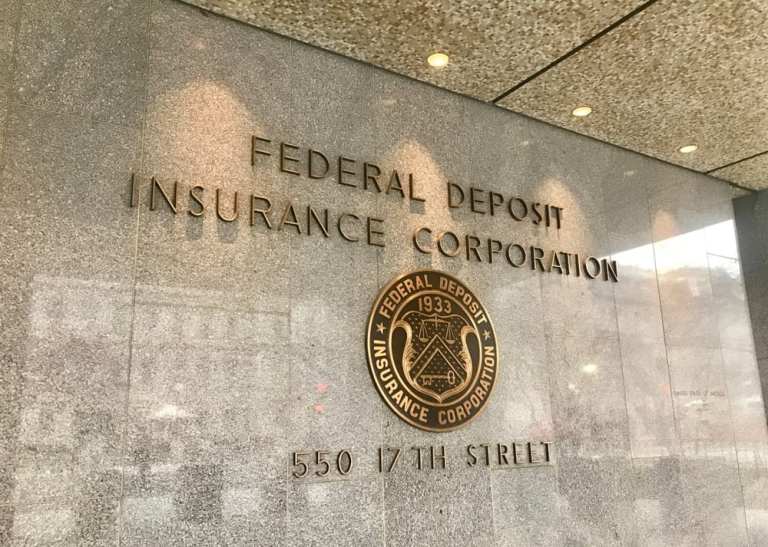FDIC Chair: Stablecoins Could Bring Bank Consolidation, Disintermediation

Stablecoins have the potential to “fundamentally alter the landscape of banking,” the head of the Federal Deposit Insurance Corporation said in a speech on Thursday (Oct. 20).
Speaking about The Prudential Regulation of Crypto Assets at the Brookings Institution, Acting FDIC Chairman Martin Gruenberg said that “economies of scale associated with payment stablecoins could lead to further consolidation in the banking system or disintermediation of traditional banks.”
The network effects payment stablecoins bring could change the way credit is extended, he added. This could be done “by facilitating greater use of FinTech and non–bank lending — and possibly leading to forms of credit disintermediation that could harm the viability of many U.S. banks and potentially create a foundation for a new type of shadow banking.”
While he didn’t take a position on the divisive question of whether state-chartered banks should be allowed to issue stablecoins, other than saying both should be subject to “prudential regulation and oversight,” Gruenberg did warn that “the potential for non–bank stablecoins to disintermediate community banks from their local communities is an issue that should also be carefully explored and considered.”
Another issue he said needed policy consideration is how “payment stablecoins would appropriately interact with the Federal Reserve’s upcoming FedNow service, as well as the potential development of a U.S. central bank digital currency,” he added.
Gruenberg did differentiate between stablecoin’s use in the trading of cryptocurrencies — which is how the vast majority are used now — and their use in payments.
“We are at a pivotal policy point with this new technology and asset class, much as we were during the free banking era of the late 1800s and early 1900s,” he added.
Crypto Bill Would Protect Developers, DeFi
A bill that would hand a great deal of crypto oversight authority to the Commodity Futures Trading Commission (CFTC) has been updated to prevent it from becoming a decentralized finance killer, according to a leaked draft of the bill.
A copy of the Digital Commodities Consumer Protection Act (DCCPA) changes the definition of “digital commodity broker” and “digital commodity trading facility” to specifically exclude anyone who “develops or publishes software.” It already excluded validators who verify transactions and write them onto proof-of-stake (PoS) blockchains, a category that now includes Ethereum.
See also: What’s a Consensus Mechanism and Why Is It Destroying the Planet?
The definition of a digital commodity dealer has been changed to specifically exclude those two plus anyone who “enters into proprietary trades.”
As originally written, the DCCPA “could be interpreted as a ban on decentralized finance (DeFi) — an unintended result of applying the same rules to centralized intermediaries and decentralized protocols,” the Blockchain Association said in September.
Those changes also solve the problems that caused 99 senators to try to fix language in the $1 trillion infrastructure act last year. It was feared that could place tax reporting requirements on both software developers and PoS node operating validators — neither of whom have access to that information in the individual transactions they add to blockchains.
Read more: Crypto’s Influence Shows as Treasury Promises Protection for Miners, Stakers
The DCCPA is being negotiated by Sens. Debbie Stabenow, D-Mich., and John Boozman, R-Ark., the chair and top Republican of the Senate Agriculture Committee, which oversees the CFTC.
Beyond that, the draft bill would exclude FDIC-insured depository institutions — federally chartered banks — from the definition of “digital commodity custodians” but drop a similar exclusion for insured credit unions.
Finally, it would give the CFTC “nonexclusive jurisdiction over trades in which the digital asset in question is both a commodity ad a security — meaning the Securities and Exchange Commission (SEC) could not claim exclusive control. The SEC and CFTC have been elbowing for control of cryptocurrency trading, with the industry supporting the CFTC as a way to weaken the SEC, which many have accused of legislating by enforcement.
See here: SEC Chair Gensler Backs Granting CFTC More Crypto Oversight
Well-known crypto attorney and Delphi Labs General Counsel Gabriel Shapiro, who released the draft, warned that the changes are still “a matter of significant debate” in a Twitter thread.
However, the ultimate provenance of that language is unknown to me, and I am informed that the inclusion of this exception is a matter of significant debate.
— _gabrielShapir0 (@lex_node) October 19, 2022
IRS Defines NFTs as Assets
Another proposed redefinition came out of the IRS this week, with the tax agency creating a new broader category of digital assets. That would encompass both NFTs and the old virtual currencies, like cryptocurrencies and stablecoins, and see them taxed the same way.
It was unclear how the agency classified the non-fungible tokens that hold art, video and music.
The language released on Monday (Oct. 17), if adopted, would be a win for NFT owners, as the other likely category is “collectables,” which are taxed at a higher rate than assets like stocks and bonds.